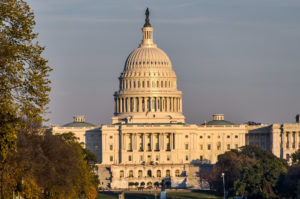AARP Report: 56K Hawaiʻi Residents at Risk of Losing Health Insurance
A new AARP Public Policy Institute report released this week estimates that nearly 56,000 Hawaiʻi residents will lose health care coverage by 2022 if the Senate health care bill passes. AARP also estimates that Hawaiʻi would lose $1.6 billion in Medicaid funding.
The report states that the bill to repeal and replace the Affordable Care Act caps spending on Medicaid and cuts $772 billion in federal Medicaid spending, shifting costs to states, state taxpayers and families. AARP estimates Hawaiʻi would lose $1.9 billion in total federal and state Medicaid funding from FY 2020 to FY 2026.
The bill contains an age tax, which would allow insurance companies to charge older consumers five times more for the same health coverage as a younger person and reduces tax credits that help lower- and moderate-income people pay for insurance.
AARP says the legislation would make insurance unaffordable for many older residents. The report estimates a 60-year-old Hawaiʻi resident making $30,000 annually could pay up to $4,450 a year in additional premiums and $1,276 more each year in deductibles, coinsurance and co-payments. Premiums for a 60-year-old earning $55,000 in Hawaiʻi could rise to as much as $8,661 more each year.
The report shows that about 268,116 Hawaiʻi residents are between the ages of 50 and 64 and that 54% of them receive tax credit assistance under the Affordable Care Act.
“The Senate health care bill means consumers will have to pay more for less coverage. It will not reduce the cost of health insurance for older residents,” said Barbara Kim Stanton, the AARP Hawaiʻi state director. “The Medicaid cut would place a huge burden on lawmakers and taxpayers to either raise state taxes, cut health care services to Hawaiʻi residents who need it the most, or cut services elsewhere. It threatens hospitals, especially on Neighbor Islands and in rural areas, which will have to absorb the cost of providing care to the increased number of uninsured.”
The AARP state analysis estimates that one out of every eight Medicaid beneficiaries, about 43,000 people by 2026, would have to lose coverage to maintain the same level of service for remaining beneficiaries.
AARP says the bill would also hurt kupuna in nursing homes and providers who care for people in nursing homes and at home, who could see reduced payments because of the Medicaid cuts. Payments to nursing facilities accounted for about 75.5% of Medicaid long-term services and support payments in 2014. Home and community based services are optional in Medicaid and could be more vulnerable to cuts.
The report states that people who get their insurance through their employer also face higher costs because the bill allows states to weaken important consumer protections that ban insurance companies from capping how much they will cover annually, or over a person’s lifetime. States could also weaken or waive requirements that protect consumers from high annual out-of-pocket spending, such as deductibles and co-pays.
The bill would also affect about 44,237 Hawaiʻi residents ages 18 to 64 who leave or lose their jobs and who may have to buy coverage on the individual market.
About 190,634 Hawaiʻi residents, 73% ages 50 to 64, get their insurance through their employer. About 20,098 Hawaiʻi residents ages 50 to 64, get coverage through the Health Exchange.
The bill also allows states to weaken or waive Essential Health Benefits in the Affordable Care Act as well as limits on consumers’ annual out-of-pocket spending. About 93,366, or 34% of 50 to 64-year-old Hawaiʻi residents have a pre-existing condition.
The bill also reduces Medicare’s solvency by repealing a 0.9% payroll tax on higher-income workers. It increases Medicare premiums by removing nearly $26 billion in required payments from pharmaceutical companies over 10 years from the Part B trust fund.
“AARP Hawaiʻi thanks Sens. Brian Schatz and Mazie Hirono for their steadfast opposition to this bill,” Stanton said. “We urge the Senate Majority to dump this special interest bill that gives billions to insurance and drug companies by charging consumers, especially older Americans, higher costs for reduced benefits and strips away critical consumer protections. We need the bill to start from scratch and put consumer health needs first.”
Last year, Medicare covered 224,880 Hawaiʻi residents, about 16% of the state’s population. Most – 91% – are over age 65 and 9% are people with disabilities under age 65.











